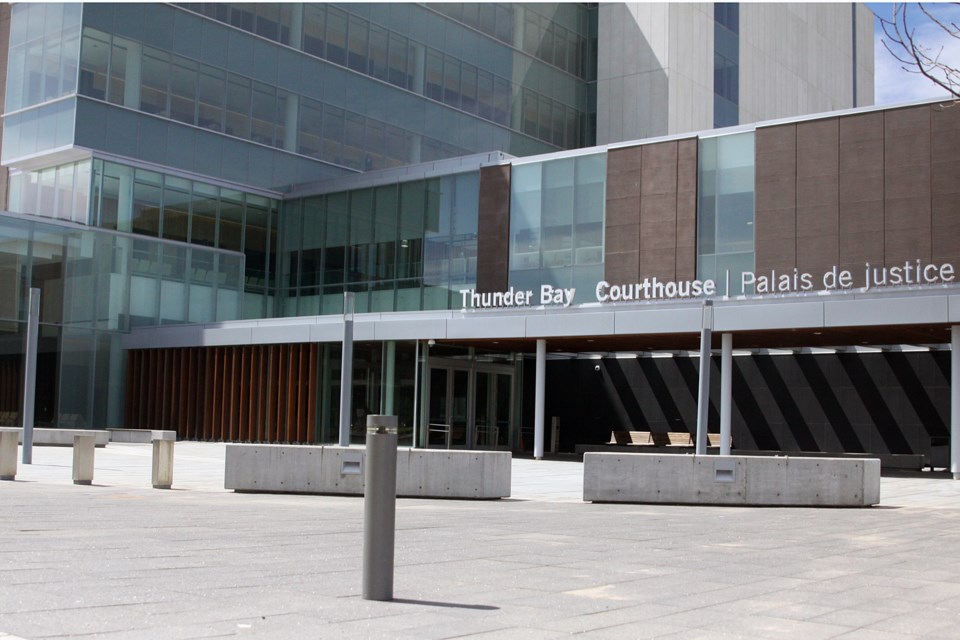Warning: This story contains details some readers may find disturbing
THUNDER BAY — Nearly three-and-a-half years after charges were laid in connection allegations dating back more than 40 years, a judge will determine if a 64-year-old man is guilty of sexually assaulting several youth in the city’s East End.
The trial for Wayne Gilberds concluded on Wednesday with counsel providing closing submissions before Justice Chantal Brochu in a Thunder Bay courtroom.
Gilberds pleaded not guilty to four counts of indecent assault at the start of the trial that opened last June. Gilberds was first arrested in March 2021 following an investigation by the Thunder Bay Police Service.
The allegations relate to incidents between 1975 and 1982 while Gilberds was working at the East End Boys and Girls Club, then known as the Wayside.
During the trial, four complainants testified before the court. There is a publication ban in effect protecting the identities of the complainants.
The complainants ranged in age between six and 14 years old at the time of the alleged assaults.
According to testimony heard in court, Gilberds was working as a counsellor or youth worker at the Wayside in the late 1970s and early 1980s.
The complainants testified to being sexually assaulted by Gilberds on numerous occasions over several years. The assaults were said to have occurred both inside the Wayside building and outdoors.
One complainant testified of being afraid to come forward because of alleged threats made by Gilberds, including saying he would blow up the complainant’s house with dynamite.
During closing submissions, Crown attorney Danielle Wood said the complainants testified candidly and directly before the court, without embellishment.
“[The complainant] testified in a detailed manner,” Wood said of one. “[The complainant] was able to recall in detail the layout of the locations of the assaults and describe in great details the context in which the assaults arose.”
Wood also reminded the court that the complainants, though now adults, were testifying about incidents that occurred when they were children and their testimony should receive some deference by the court.
Defence counsel Sharon Sabourin’s closing submission addressed each complainant’s testimony individually and she argued there were numerous times when the testimony was inconsistent with previous statements made to police, that the Crown failed to provide any corroborating evidence from other witnesses, and she called into question the memory of the complainants.
She pointed to instances when the complainants admitted to ‘mixing up’ memories or having difficulty remembering something they said the previous day in court.
“This court has to make a determination that things happened with certainty,” Sabourin said. “With a level of certainty beyond a reasonable doubt. If a complainant comes forward and says they are mixing and matching, you cannot find beyond a reasonable doubt.”
Sabourin also argued that there appeared to be collusion among the complainants to secure a conviction against Gilberds.
“There was talk about seeing Gilberds go down or have to be punished,” Sabourin said. “Those sentiments in my view are concerning to the extent that if there was an opportunity to discuss this and we know there was and these individuals shared a sentiment that really speaks to an ultimate goal of having him convicted, there is a real air of reality to collusion and the effect of tainting or influencing the complainant’s evidence.”
The complainants did meet prior to the trial, but that was to prepare victim impact statements after GIlberds initially entered guilty pleas to the charges in December 2022.
Those guilty pleas were struck, however, when Gilberds appeared to not understand the court proceedings. A fitness assessment was ordered that ultimately determined he was fit to stand trial.
Wood informed the court that the meeting of the complainants was not to discuss the allegations but rather to discuss the victim impact statements.
But Sabourin said at least two complainants connected over social media after a page was created to talk about what happened at the Wayside.
“There are so many inconsistencies, problems with memory, outright falsehoods, and opportunities for collusion,” Sabourin said of the complainant’s testimonies.
Brochu is expected to return in early December with her decision.
